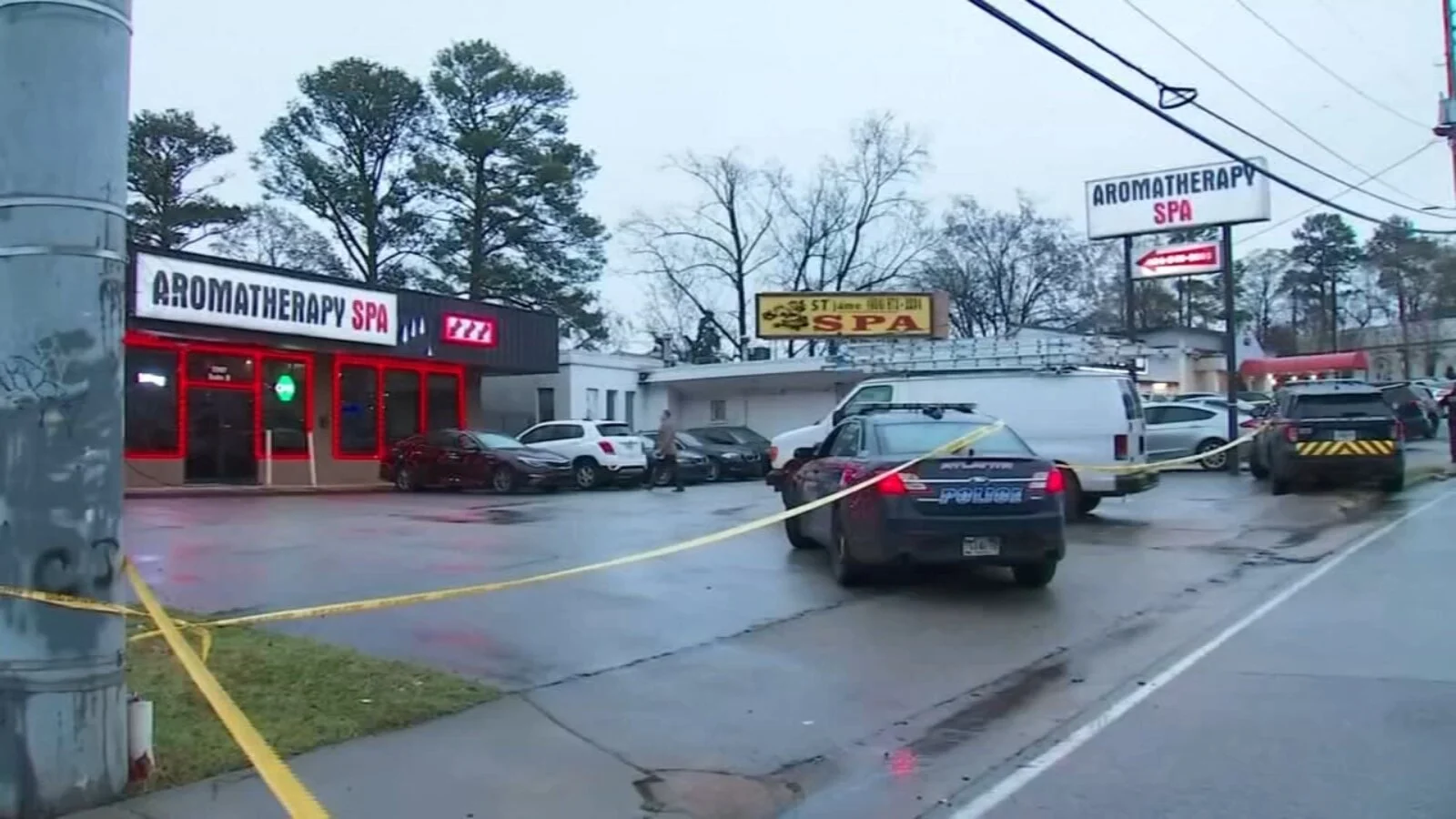Editorials Archive
This page features an archived collection of editorials from 2019-2021.
Editor Rachel Pastan says goodbye to The Swarthmorean and shares final thoughts about issues facing the borough.
In honor of National Poetry Month, associate editor Satya Nelms shares the importance of poetry in her life.
In the wake of the brutal murders in Georgia on March 16, associate editor Satya Nelms on the importance of calling things what they are.
Editor Rachel Pastan looks back to a year ago, when COVID hit Swarthmore, and considers the future.
Associate Editor Satya Nelms recalls how she first met her husband, and talks about the Valentine’s Day traditions they now share with their children.
In this editorial, editor Rachel Pastan asks herself what the role of a small-town newspaper editor is when it comes to writing about the January 6 assault on the Capitol in Washington D.C., and reflects on connections between our community and the greater world.
Engineer and contributing opinion writer Stefan Roots highlights the dismal state of education in Chester, and muses on why his writing skills are currently more in demand than his engineer’s credentials.
A catalog of the Swarthmorean’s changes over the past year, and a shout-out to the many who helped.
Hanukkah, the Jewish festival of lights, began last night. To me, the menorah always looks forlorn on the first night, with just the one candle (plus the shamash) burning. But I like knowing we’ll add another every night. It seems like recompense for the minute or two of sunlight we are still losing daily. It’s been a dark year by pretty much any measure. As we move into winter, I hope all of you have lights to kindle. Glimmers of promise for the new year.
Built on a myth about how this country came to be, Thanksgiving might be the best occasion of all to remember the inequities that have shaped the world and our place in it. After giving thanks for what we have, perhaps we can ask ourselves what we might do to reshape it.
I was at the Swarthmore Farmers Market when the news broke that Joe Biden had won the election. People started cheering in the streets. Honking their horns. I saw some people break down in tears. I understood it, but I didn’t feel it.
The stakes of this election feel immense. Whatever the outcome, many people will doubtless be furious and despairing. And COVID-19 will continue to stalk us. And Black men and women will continue to be killed in disproportionate numbers by the pandemic and the police alike. Whatever deliverance we’re waiting for, we’re unlikely to find it in the election results. It will take a tremendous amount of work to unravel the patterns of animosity and fear surrounding us.
A few weeks ago, I went to a meeting where the borough council’s Public Safety Committee discussed police-community relations. Chief Stufflet, Mayor Marty Spiegel, and Swarthmore resident and sociologist Virginia Adams O’Connell came to the meeting to report on conversations they’ve been having about Swarthmore police policies, training, and attitudes. I like to think that Swarthmore is small enough and has enough resources and good will that it comes as close as any town could to being perfectible. Doubtless that’s a romantic notion. But I’m guessing I’m not the only one who feels this way.
As houses in the borough keep getting bigger, they fetch higher sale prices when they turn over. This means that the people who can afford to move to this town have to be increasingly rich. But while the property belongs to one person or family, the town belongs to all of us. This is about me. It’s about who I want my neighbors to be. This is about us, and what kind of community we want to be.
I could write a whole editorial about the decline of newspapers as a kind of found poem: a series of dire headlines. Even before the pandemic — even before accelerated attacks on the press by the occupant of the White House and police targeting of journalists during protests across the country — things were looking grim for newspapers.
This is not the year they were imagining. This is not the year any of us was imagining. And as our community confronts the gap between what we had hoped for this school year and what it has turned out to be, a question keeps coming up. When will we get back to normal?
Passed by Congress on June 4, 1919, ratified on August 18, 1920, and taking effect on August 26, 1920, the Nineteenth Amendment granted women the right to vote in all elections. But women of color are often erased from the suffrage story, and their influence and contributions remain unacknowledged.
As we slog through this dark time, there are also moments of light: the cardinal in the tree, the child’s chalk drawing on the sidewalk, the sight of my neighbor — hospitalized for over a month with COVID-19 — walking swiftly around the block. The rare face-to-face talk with a friend, with six feet of grass between us.
Underneath the newspaper’s name, the Swarthmorean banner reads “Serving Swarthmore and Surrounding Communities Since 1893.” This publication seeks to support and lift up the community it represents. I find that a noble mission and ambition for a local paper. When I learned that the position of associate editor was available, that mission drew me in.
Why do so many people seem embarrassed when they tell me what books they love and what books they’ve never read? And why do so many people tell me they know I’ll love a certain book when they have no idea what kind of books I love?
June 19 is Juneteenth, the anniversary of the day in 1865 when enslaved people in Texas finally learned that, two and a half years earlier, the Emancipation Proclamation had legally set them free. If regular Juneteenth commemorations have been held in Swarthmore, they have not been announced in the pages of this newspaper, which record observances and public celebrations of Memorial Day, the Fourth of July, Chanukah, Christmas, and Kwanzaa. I would like to change that.
There’s a spider living in the holly bushes outside my house. Every night, it spins a web across my front path. When I go out to walk the dog before sunrise, I run straight into the sticky, invisible threads. This time of year, though, the sun rises early, and I can see the web. That’s how I’ve been thinking about the short racist video that’s been circulating through our community this week and about the many videos over the last months and years showing black people dying at the hands of white people, often police.
On Sunday, over 400 Swarthmore students from all over the country and the world came together virtually, watching on their laptop screens, or maybe on their phones, the landscape that should have surrounded them. High school commencements are up next. Strath Haven High School students will graduate on Friday, June 5. A choreographed plan of staggered appointments will permit each graduate to receive their diploma, accompanied by two guests, and have their photograph taken to document the moment.
On Saturday, when I went to pick up groceries curbside, I wore a mask for the first time. And did I forget to mention that it’s National Poetry Month? April. It’s hard to keep track of these things lately. But the timing is good! Poetry may be just what we need right now.
On November 1, 1918, Swarthmorean readers learned that there had been only two influenza deaths in the borough, “a fact which speaks well for the place and its fine force of doctors.” As of this writing (Tuesday morning, March 31, 2020), there are seven confirmed cases of COVID-19 in Swarthmore and no deaths. The Swarthmorean survived the 1918 pandemic, and we plan to survive this one too, with your help.
It feels wrong — discordant — that the issue of the Swarthmorean published during the first full week of our COVID-19 anxiety is the summer camp issue. Of course, special issues are planned a long time in advance. Still, maybe it’s not so bad.
It’s noon on Tuesday, and I’m sitting at my desk at home, still in my pajamas. I got up extra early this morning to finish the article (in this issue) about last night’s quite emotional and unusually interesting Wallingford-Swarthmore School Board meeting. Now I want to write something about the new coronavirus. No one in Swarthmore — no one in the school district — has tested positive. But not writing about it seems like ignoring the elephant in the room.
I walked home from the Swarthmore Borough Council work session this warm winter evening, wondering whether I should write up the meeting for the paper. There were some interesting tidbits and new conversations. New to me, anyway. And if this newspaper doesn’t write about them, how will anyone know? Editorial
On Monday, Swarthmore Borough Council met in its first work session of the year, which was also its yearly organizational meeting. Thus, the main business of the evening was swearing people in and appointing folks to various positions and committees. Not much happened that I would call news, but I felt as though I made some progress in my ongoing quest to understand how our borough government works.
Here are some things I learned.




























